Formula 1®
Pit stops at the limit: Victory or defeat can hinge on the speed of a tire change
After three rounds of the current campaign, the situation in the Formula 1 world championship is tighter than we have seen for a long time. In the constructors’ championship, Mercedes and Ferrari are separated by just one point, with Red Bull Racing only 30 points behind after Daniel Ricciardo’s victory in China. In the drivers’ standings, the Top Four are within 17 points of each other. It is turning out to be an incredibly exciting Formula 1 season!
With the top teams being so well matched, the pit stops take on an added importance. Because if the front-runners are almost equally fast, just a tenth of a second gained or lost on a tire change can be the difference between victory or defeat. The teams know this too, of course, which is why they are resorting to ever more unconventional strategies.
Red Bull stun with double stops
In China, Red Bull Racing amazed the watching fans with two perfect double stops. Daniel Ricciardo and Max Verstappen had new tires fitted in quick succession, with neither of the stops lasting more than three seconds. Red Bull even completed the second-fastest stop of the race with a time of 2.33 seconds. Only Mercedes were faster, sending Valtteri Bottas on his way in 2.15 seconds to secure the DHL Fastest Pit Stop in Shanghai.
This unusual approach adopted by Red Bull was ultimately rewarded, as Daniel Ricciardo celebrated victory in the Chinese Grand Prix. For team boss Christian Horner, it served to emphasize the importance of pit stops in Formula 1: “A strong strategy and a great performance by the pit crew, who have done an amazing job all weekend. We made a late call to get both cars in, and again, the second double stop was clinically executed and they did an unbelievable job.”
Balancing perfectionism and risk taking
The world record is 1.92 seconds, but the pressure to perform ever faster pit stops carries a high level of risk. Several times in the as yet young F1 season, teams have had problems getting the tire change right, the consequences of which have been premature retirements from the race. Ferrari driver Kimi Räikkönen got caught out in Bahrain, and in the season opener in Australia, both Haas drivers failed to finish the race because of incorrectly fitted wheels.
“The pit stop contains an element of risk, but that’s what makes it so interesting,” says Haas team principal Günther Steiner. “We need that element of human fallibility. That’s what happened to us, and I’m not happy about it, but we need the risk, because if you automate everything, you might as well have robots doing the job.”
We can introduce a few things to improve and decrease the likelihood of mistakes.
Charlie Whiting
The FIA is currently working on ways to further improve safety. "We can introduce a few things to improve and decrease the likelihood of mistakes. I think we have learned something, but I think we need to, again, analyse these things to ensure what we do, we do it precisely and make sure everyone is able to follow it," says F1 Race Director Charlie Whiting, who sees the challenge in deciding which bits need to be automated and which bits need to be operated by humans.
One solution to improve the procedure would be to mandate using two wheel gun sensors - a system some teams are already operating. One sensor measures the torque, which can judge whether the nut has been tightened correctly and the other monitors the position of the nut and would therefore identify if it has been cross-threaded - as happened to Haas twice in Australia.
Haas come back in Bahrain
The foundations for the perfect pit stop are laid during the winter break when the pit crews perform thousands of practice tire changes at the factory. To get the perfect result, the mechanics need to be able to perform every single hand movement in their sleep. After their miserable start to the season, Haas at last got it right in the second race in Bahrain where they executed impeccable stops and even scored points in the DHL Fastest Pit Stop Award.
The pit stop contains an element of risk, but that’s what makes it so interesting.
Günther Steiner
Steiner was full of praise for his team, who surprised even him with the speed of the tire change: “The guys did a great job to come back so quickly. The aim was just to send the car on its way again. We did the right thing, made some decisions and gave the crew enough training to get their confidence back.”
Thrilling contest for the DHL Fastest Pit Stop Award
The Formula 1 world championship is looking to be a close-run affair at this stage, and it is a similar picture in the DHL Fastest Pit Stop Award which Red Bull Racing lead after three races having scored 68 points. Close behind on 57 points are Ferrari ahead of defending champions Mercedes (49) and Force India (37). It is worth noting that all ten teams have already got their names onto the scoresheet in the DHL Fastest Pit Stop Award – a testament to the extremely high level of performance in the 2018 season.

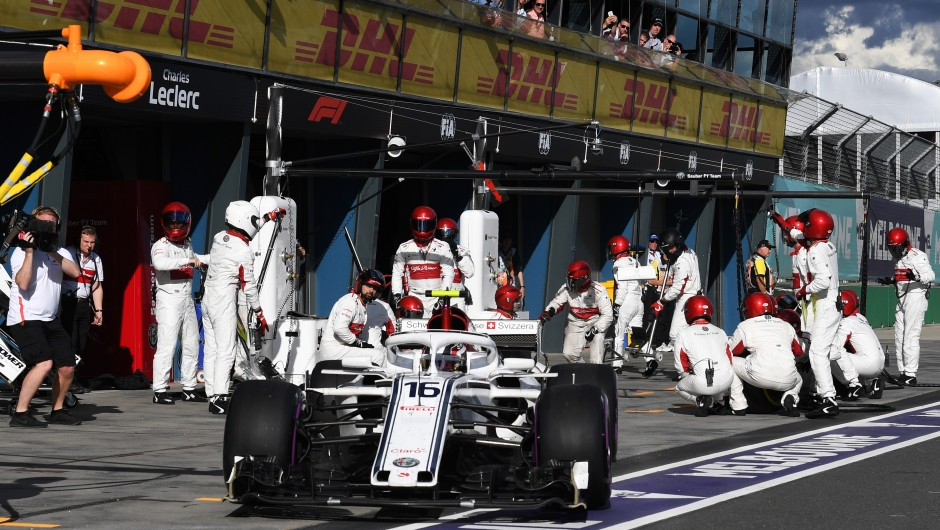
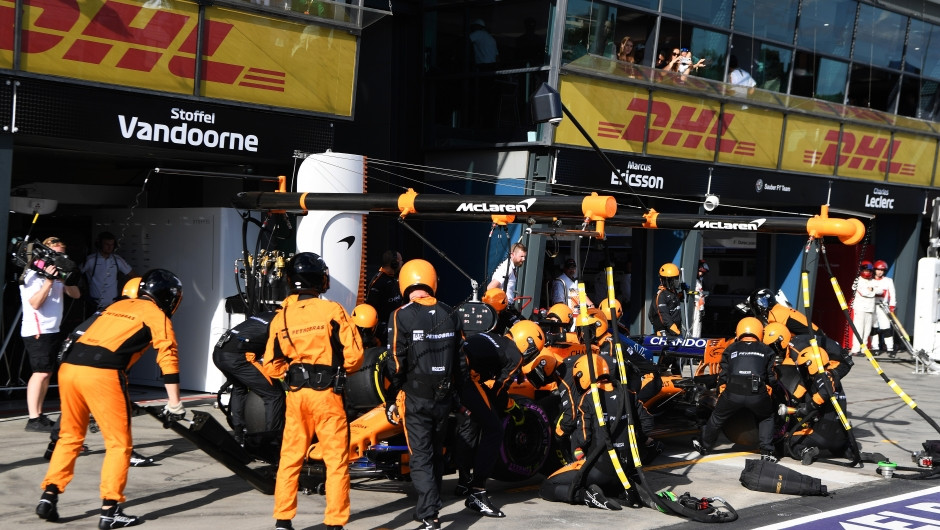
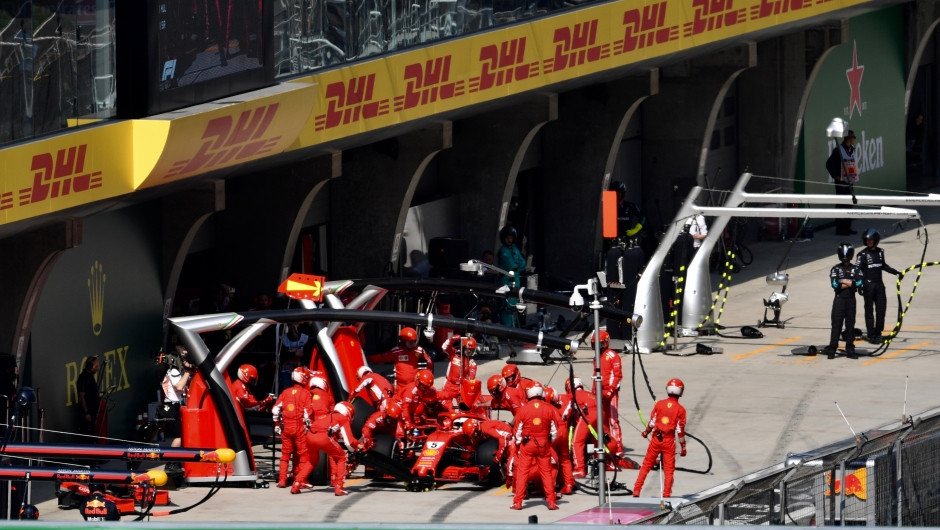
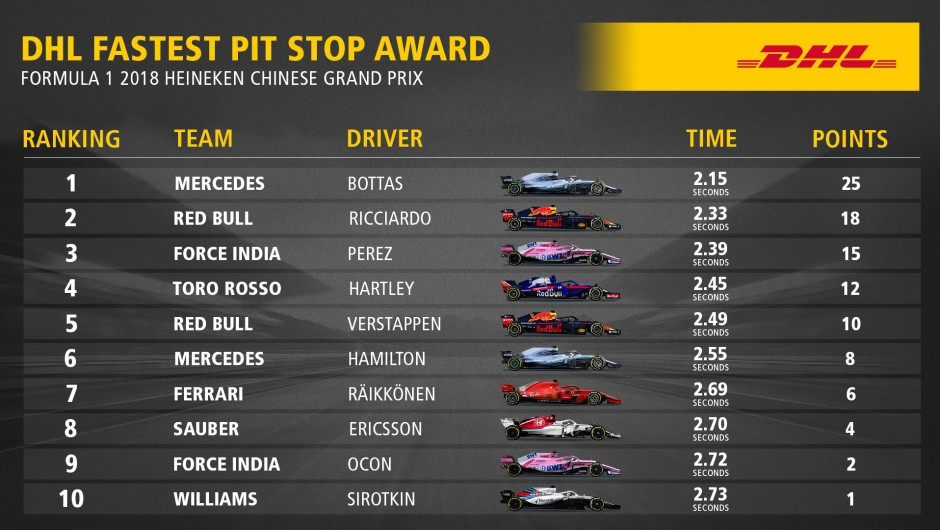
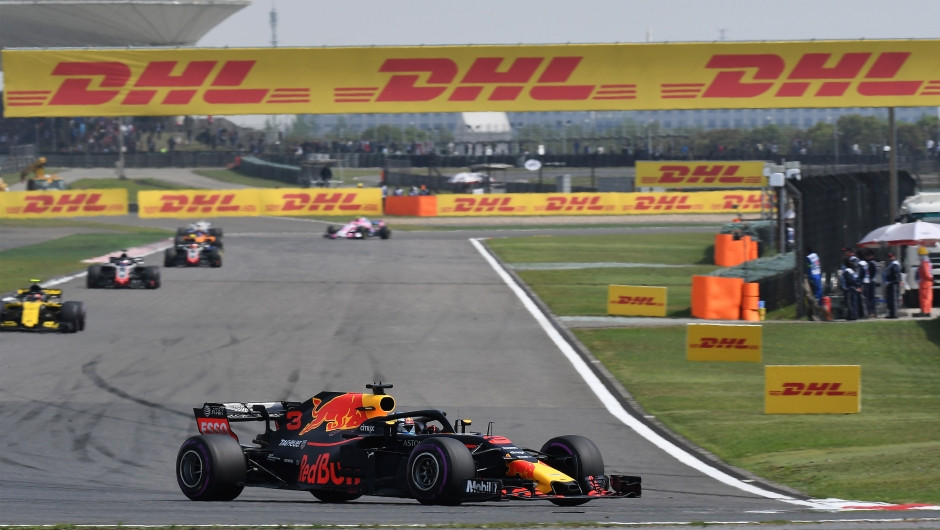
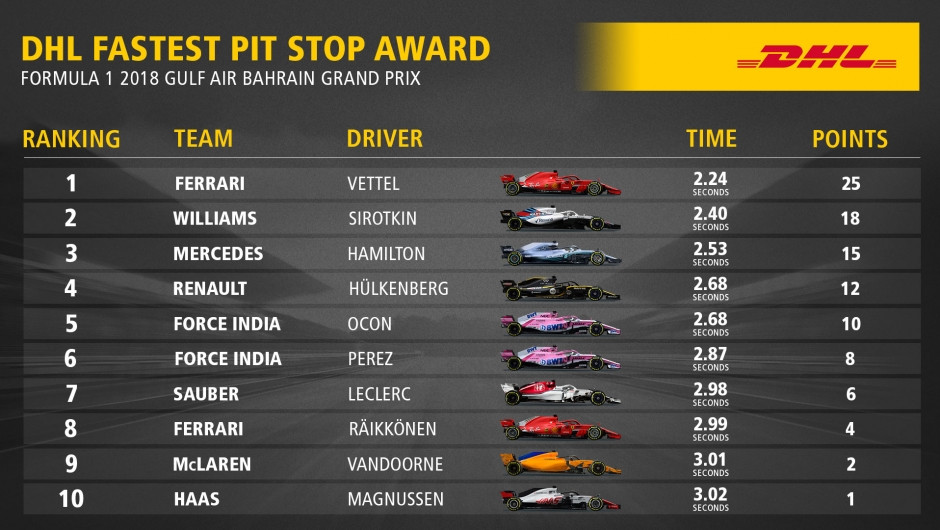
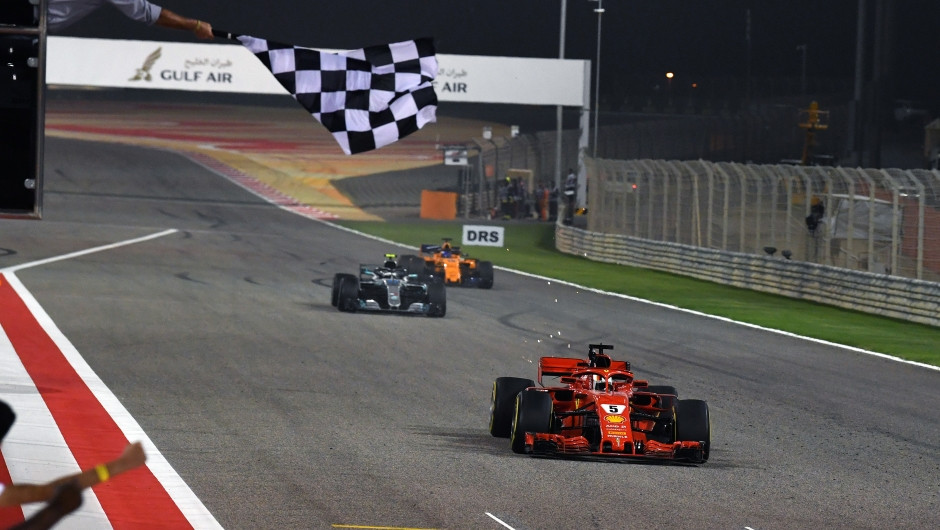
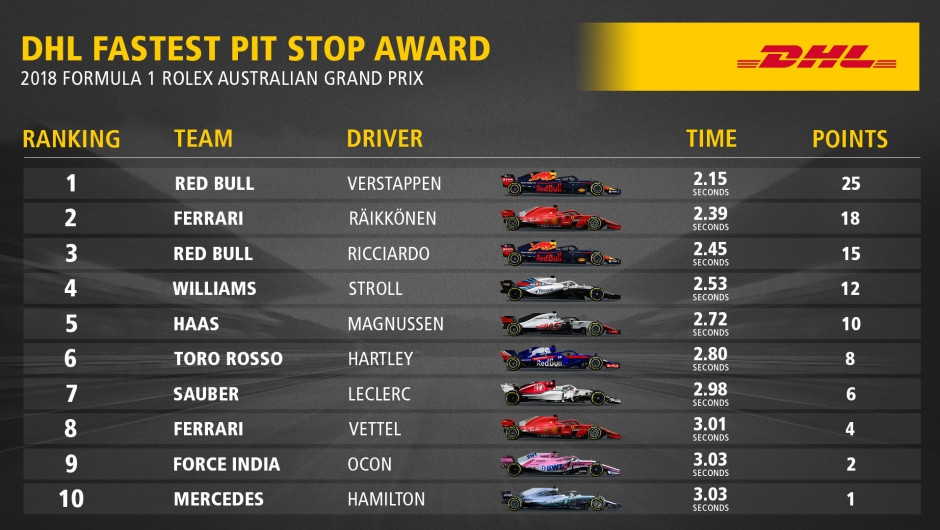
Content from disqus has been blocked because you did not allow to load it.
Loading the blocked content will adjust your privacy setting and content from this service will not be blocked in the future.
You have the right to revoke or change your decision at any time.
Posting Guidelines
All communications on Logistics of Things should be appropriate for a professional community, respecting the diverse views of individuals from different backgrounds. We will review all comments and reserve the right to terminate or restrict access to user's account and to delete any content posted through it, without notice and at our discretion, if we deem it to be overly promotional, offensive, or off topic.
All posting become property of DHL.